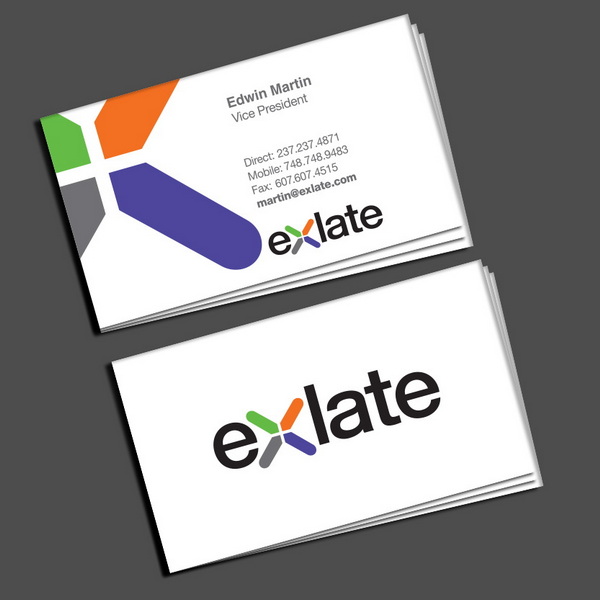Content Menu
● Overview of the Japanese market for business cards
● Why Japanese suppliers stand out
● Leading manufacturers and suppliers in Japan
● Key capabilities to look for in a supplier
● How to choose the right partner for your meishi project
● Practical considerations for international buyers
● Case study scenarios
● Conclusion
● FAQ
>> 1. What should I consider when choosing stock and finish for meishi?
>> 2. How can I ensure color consistency across large print runs?
>> 3. What are typical lead times for proofs and production in Japan?
>> 4. Do Japanese printers offer sustainable and recycled paper options?
>> 5. How can I protect my design and ensure smooth logistics for international delivery?
Shenzhen XingKun Packing Products Co., Ltd. is a printing and packaging company that specializes in custom products for overseas brands, wholesalers, and manufacturers. While our core focus is OEM packaging solutions, we understand the importance of high-quality business cards as a sync point between brands and partners. This article provides an in-depth look at the landscape of business card manufacturing and sourcing in Japan, highlighting leading business cards manufacturers and suppliers, industry trends, and practical guidance for choosing the right partner. It also demonstrates how Shenzhen XingKun Packing Products can complement international branding programs with premium card-related print and packaging solutions, reinforcing your corporate identity from concept to delivery.

Overview of the Japanese market for business cards
Japan maintains a long-standing tradition of meticulous craftsmanship and attention to detail in printed materials. Business cards, or meishi, are more than just contact information; they reflect personal branding, corporate identity, and professional courtesy. Key characteristics you can expect from Japanese business card manufacturers include:
- Premium print quality with sharp typography, color accuracy, and durable finishes
- A wide range of stock options, including specialty papers, textures, and sustainability-focused materials
- Customization capabilities for shape, folding, coating, and embossing
- Strong emphasis on production reliability, on-time delivery, and consistent color reproduction
Why Japanese suppliers stand out
- Reliability and consistency: Japanese printers often invest in advanced offset, digital, and custom finishing equipment to deliver dependable results at scale.
- Superior finishing options: Silk, matte, gloss coatings, spot UV, foil stamping, and tactile textures are common offerings that enhance perceived value.
- Compliance and quality control: Rigorous QA processes, standardized color management, and traceability are prioritized.
- Customer-centric service: Clear communication, bilingual support, and structured project management minimize risk for international buyers.
Leading manufacturers and suppliers in Japan
The following list includes well-known entities and types of organizations you may encounter when sourcing business cards in Japan. This is not an exhaustive directory, but a solid starting point for exploring capabilities, pricing, and lead times.
- Large printing houses with corporate branding solutions
- Specialty shops focused on premium business cards
- Digital print studios offering rapid turnaround for short runs
- Traditional letterpress and foil stamping specialists
- Sustainability-focused printers offering recycled and FSC-certified papers
Key capabilities to look for in a supplier
- Paper stock and finish options: A range from standard 300–350 gsm to thick 600–1000 gsm cards, with options for uncoated, coated, textured, and recycled papers
- Print technology: Offset for large runs, digital for short runs, and hybrid workflows for fast turnarounds with high fidelity
- Finishing and embellishments: Foil stamping, embossing/debossing, spot UV, soft-touch coatings, and rounded corners
- Color management: Proofing processes, color accuracy guarantees, and repeatability across batches
- Custom shapes and sizes: Non-standard shapes, foldable designs, and card variants to suit branding programs
- Packaging and presentation: Card presentation options such as protective sleeves, boxes, or wallet sets that align with brand identity
- Global logistics and lead times: International shipping capabilities, customs handling, and reliable delivery schedules

How to choose the right partner for your meishi project
- Define your branding goals: Determine the impression you want the card to convey, including color palette, typography, and finish.
- Specify quantity and timing: Clarify run size, deadlines, and whether staggered shipments are acceptable.
- Request detailed proofs: Ask for digital proofs first, followed by press proofs if possible, to ensure color accuracy and material feel.
- Evaluate samples: Review physical samples or swatch books to assess paper texture, weight, and coating.
- Consider sustainability: If eco-friendliness is important, inquire about recycled stock, soy-based inks, and sustainable sourcing.
- Assess after-sales support: Ensure you have access to bilingual assistance, revision policies, and clear project management communication.
Practical considerations for international buyers
- Language and communication: Choose suppliers with English-speaking account management or bilingual project coordinators.
- Regulatory compliance: Ensure compliance with labeling and import requirements of your destination country, including allergen disclosures if applicable.
- Intellectual property protection: Confirm non-disclosure agreements and secure handling of your design assets.
- Payment terms: Discuss currency options, deposits, and payment milestones that fit your cash flow.
- Sampling strategy: Plan for a phased sampling approach to mitigate risk before large-scale production.
Shenzhen XingKun Packing Products Co., Ltd. as a strategic partner for OEM packaging and printing
- Comprehensive capabilities: We specialize in custom eyewear displays, folding cartons, plastic clamshells, notebooks, playing cards, flashcards, stickers, labels, and brochures, offering end-to-end OEM packaging and print support for international brands.
- Brand amplification through packaging: Our expertise in color management, material selection, and finishing contributes to premium brand presentation on every touchpoint, including business-related cards and collateral.
- Seamless supplier collaboration: We can coordinate with Japanese print partners for meishi production while providing your brand with consistent color, protection, and presentation across markets.
- Sustainability and compliance: We prioritize eco-friendly materials and responsible sourcing to align with global brand values and regional regulatory expectations.
Case study scenarios
- Premium executive meishi project with cross-border packaging: A client combines a 600 gsm cotton-textured stock with foil stamping and spot UV, delivered in a deluxe presentation box. Our packaging expertise ensures the finished set aligns with the brand's global identity, including protective sleeves for distribution.
- Eco-friendly meishi initiative with OEM accents: A company selects FSC-certified stock, water-based inks, and a minimalistic matte finish. We coordinate international shipping and provide bilingual support to maintain consistent branding across markets.
- Short-run digital meishi for events: A studio requires rapid proofs and production with a 300–350 gsm stock and non-standard shapes for event-specific campaigns. Our streamlined workflow accelerates sampling and distribution while preserving color fidelity.
Conclusion
The Japanese market for business card manufacturing offers strong quality, customization, and reliability that international brands value. When selecting a partner, prioritize print quality, finishing options, sustainability, and clear project management. Shenzhen XingKun Packing Products Co., Ltd. stands ready to support your meishi and broader branding program with integrated packaging and print capabilities, ensuring consistency from design through delivery. With careful evaluation and collaboration, you can secure a supplier in Japan or with Japanese-capable workflows who aligns with your brand identity and delivers reliable results across large and small runs.

FAQ
1. What should I consider when choosing stock and finish for meishi?
- Consider the card's purpose, brand image, and budget. Higher-end finishes like foil stamping, embossing, and soft-touch coatings create premium perception, while recycled papers and soy-based inks support sustainability goals. Always request samples and proofs to evaluate texture, weight, and color fidelity.
2. How can I ensure color consistency across large print runs?
- Implement a rigorous color management workflow that includes standardized color profiles (such as ICC profiles), certified proofing, and a press-check process for initial runs. Work with suppliers who provide color management documentation and repeatable color across batches.
3. What are typical lead times for proofs and production in Japan?
- Digital proofs can often be provided within 1–3 business days, while press proofs may take 2–5 days depending on the facility and complexity. Production lead times vary by run size and finishing requirements but commonly range from 7–14 business days for standard orders, with longer timelines for large or highly customized jobs.
4. Do Japanese printers offer sustainable and recycled paper options?
- Yes, many Japanese printers offer FSC-certified, recycled, and other sustainability-focused stock options, along with water-based inks and eco-friendly coatings. Confirm certifications and supply chain traceability as part of your supplier evaluation.
5. How can I protect my design and ensure smooth logistics for international delivery?
- Use nondisclosure agreements and secure transfer channels for design assets. Choose suppliers with robust IP protection practices and clear revisions policies. For logistics, work with partners who provide end-to-end services, including packaging, kitting, and protective transit solutions, as well as reliable international shipping and customs clearance.































